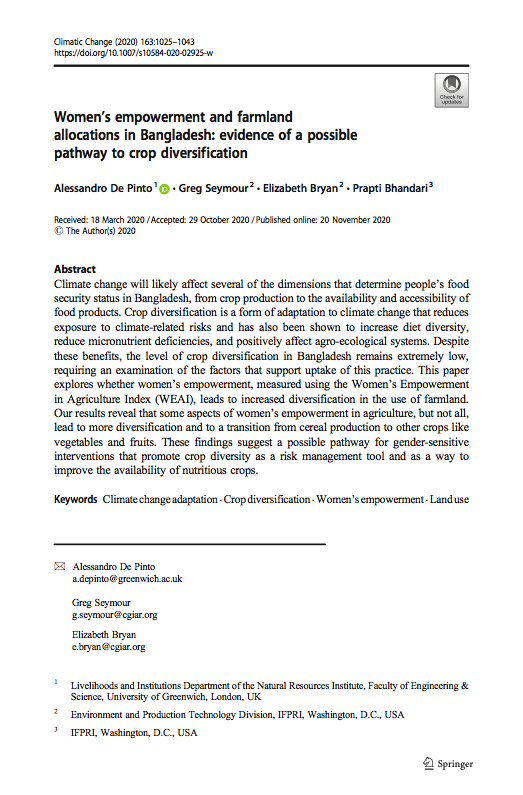Women’s empowerment and farmland allocations in Bangladesh: evidence of a possible pathway to crop diversification

ABSTRACT
Climate change will likely affect several of the dimensions that determine people’s food security status in Bangladesh, from crop production to the availability and accessibility of food products. Crop diversification is a form of adaptation to climate change that reduces exposure to climate-related risks and has also been shown to increase diet diversity, reduce micronutrient deficiencies, and positively affect agro-ecological systems. Despite these benefits, the level of crop diversification in Bangladesh remains extremely low, requiring an examination of the factors that support uptake of this practice. This paper explores whether women’s empowerment, measured using the Women’s Empowerment in Agriculture Index (WEAI), leads to increased diversification in the use of farmland. Our results reveal that some aspects of women’s empowerment in agriculture, but not all, lead to more diversification and to a transition from cereal production to other crops like vegetables and fruits. These findings suggest a possible pathway for gender-sensitive interventions that promote crop diversity as a risk management tool and as a way to improve the availability of nutritious crops.